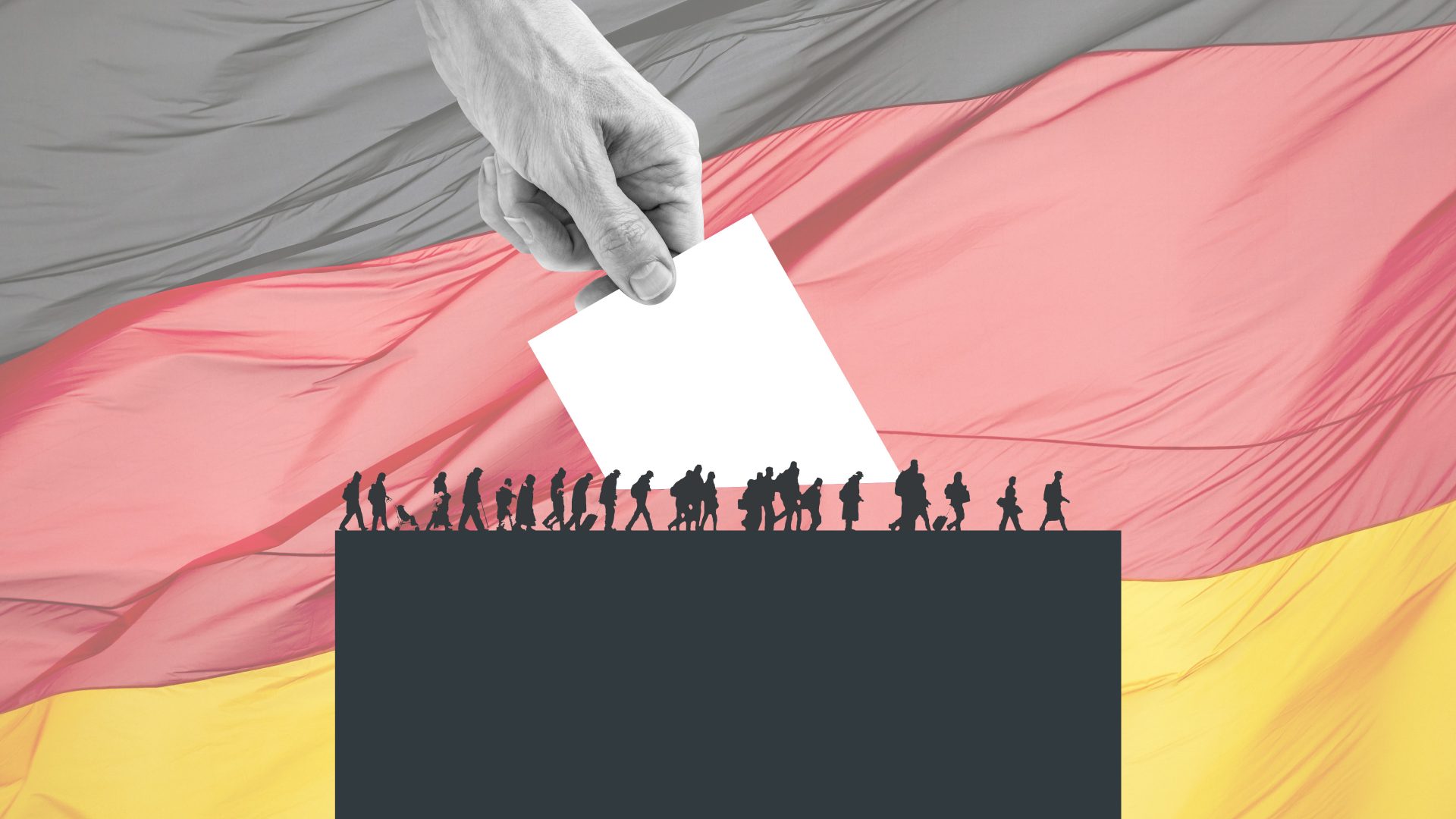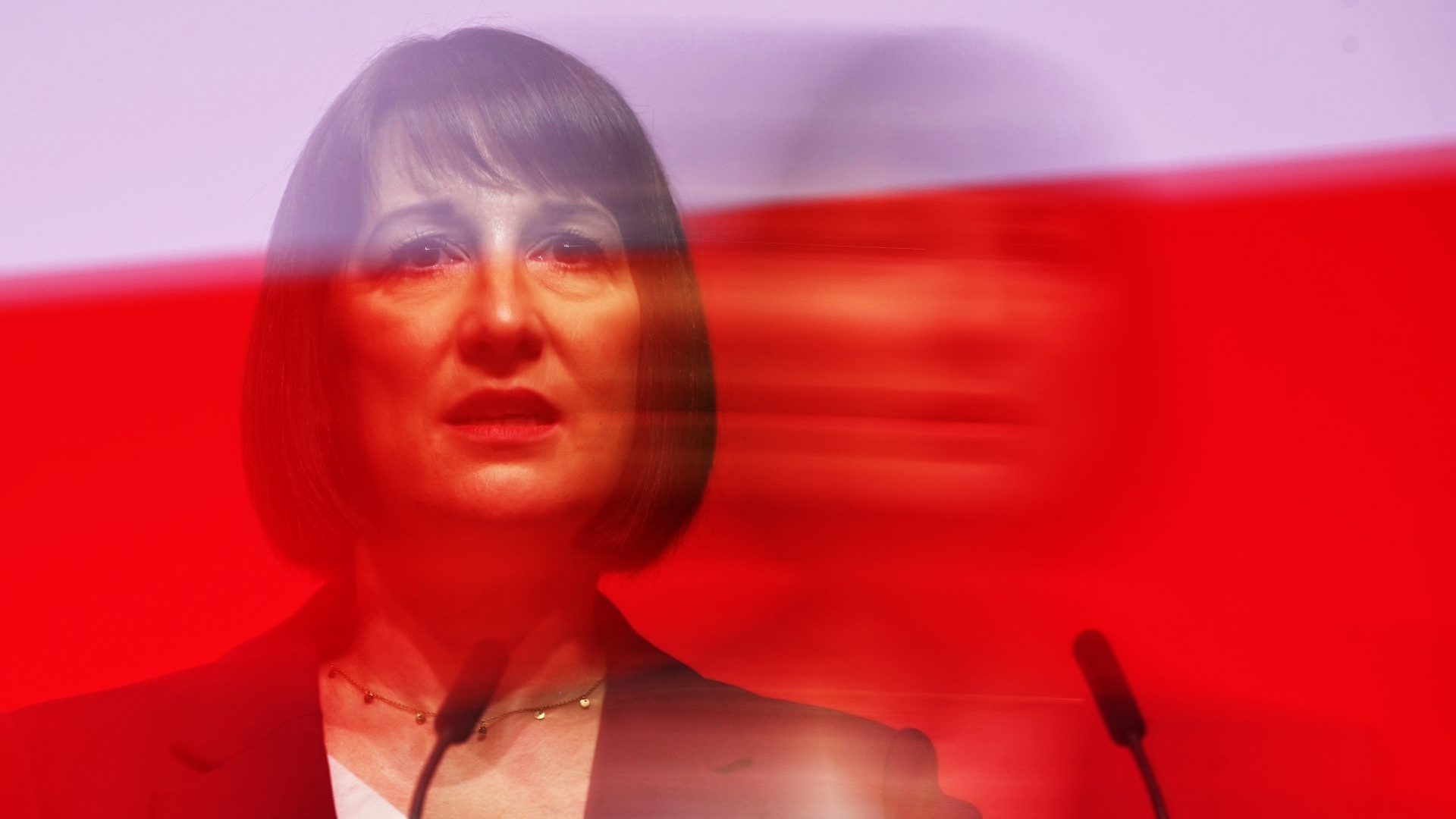It’s less than 40 days until the German election, and according to the most recent poll by ARD-DeutschlandTrend, 37% of the population see migration-related issues as the top problem. (Next up is the economy, with 34%).
Almost 183,000 Syrians have been granted German citizenship since 2000, more than 163,000 alone since the refugee crisis of 2015. The number is expected to rise further: until June 2024, foreigners could usually only get a passport after eight years’ residence.
But the last government, before it imploded, cut this to just five years. The number of immigrant voters could reach a peak at this election.
Does this mean the Social Democrats, Greens and the liberal FDP will benefit? Not at all.
Until the noughties the rule of thumb on immigrant voters was: Aussiedler – ethnic resettlers from Russia and other Eastern European countries, who automatically received citizenship if they proved their German roots or still had their (very old) passports – leaned towards the Christian Democrats. The other large immigrant group, so-called Gastarbeiter (guest workers) from Turkey, traditionally voted for the left after naturalisation, as they felt close to the unions and the Social Democrats.
Until recently, there were no representative electoral statistics on the Muslim vote, making detailed analyses difficult. Apart from age and gender, socio-demographic characteristics are not collected in Germany. The pollsters for public broadcasters ARD and ZDF never dug deep into ethnicity and even dropped religious affiliations from their exit poll questionnaire a few years ago.
But during the last two European elections, data on Muslim voting behaviour has been gathered by analysts, at least for the west of Germany and Berlin (in East Germany, the sample was too small). And in June 2024, SPD, the Greens, and post-GDR Die Linke were in for a rude awakening: while a red-green-red majority was mathematically sufficient in 2019, now only 13% of Muslims voted for the SPD – in 2019, the figure was 32%. In the same time frame, the Greens fell from 21% to 7%, while the Left Party had to settle for 8% instead of 13%.
Apart from the CDU, which increased its share from 10% to 15%, the winners were the parties that had not yet existed in 2019: the Sahra Wagenknecht Alliance (BSW) and the newly founded DAVA (Democratic Alliance for Diversity and Awakening), which is aimed exclusively at German-Turkish voters. They each achieved a 17% share of the vote. AfD and FDP remained insignificant with 3% each.
Achim Goerres, a political scientist from Duisburg who studies the voting behaviour of migrants, recently told Frankfurter Allgemeine Zeitung that the migrant vote now “doesn’t fundamentally” differ from the general vote. “The fact that the Social Democrats were significantly stronger among people of Turkish origin had to do with the fact that (they) are perceived as being more open to the problems of immigrants. But the SPD’s dominance is declining,” says Goerres. “For good reasons, the CDU is also making greater efforts to attract middle-class Muslim voters who hold conservative positions.”
Even some migrants who are frustrated with the system feel at home with the AfD. “Xenophobia and racism are just as widespread among migrants as in all other population groups,” says Goerres. Among the Aussiedler, his 2017 study after the federal election showed that around 15% of them voted for the AfD, a fifth more than in the overall population.
“The fact that the party rejects immigration is not a problem for its Russian-German voters. Some Russian-Germans see themselves as the ‘real Germans’ who had to defend their identity as resettlers,” Goerres adds.
While it is common in a society to refer to immigrants as a homogeneous group, religious and political pluralism among them is no less pronounced than among indigenous populations. In addition, there’s a typical paradox in immigration, as Mathias Rohe, a scientist from Erlangen University, points out: “The last to arrive are the first to oppose the arrival of more.”
Accordingly, migrant voters could be more attracted to the BSW’s anti-multicultural programme than the more welcoming Green position and that of the Social Democrats.
Last weekend, the AfD officially included the far right term “remigration” into their party manifesto. Will this deter migrants from voting AfD? Not necessarily.
Just remember Donald Trump, who called for the “largest deportation effort in American history”. He won a greater share of the Latino vote than any Republican presidential candidate before him.




